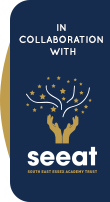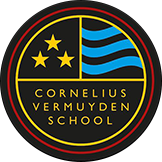Assessment
What is the aim of assessment in KS3?
At the Cornelius Vermuyden School, the purpose of our assessment model is to build ‘fluency’ as student’s progress through the curriculum. Fluency is recognisable by the speed, accuracy and automaticity of recall by the student. We do this by supporting the pupils’ journey through the curriculum so that they can ‘know more’ and ‘do more’. The model also enables us to identify gaps in learning and effectively address them before students move to the next key stage.
We assess the student’s level of knowledge using both formative and summative assessment.
What does formative assessment look like?
Formative assessment is embedded in all lessons through our ‘READ’ cycle and allows us to check for students understanding on an ongoing basis.
Examples of formative assessment include:
- Questioning
- Live marking and feedback
- Quizzes
- Recall practice
- Use of examination style questions
- Homework tasks.
What does Summative assessment look like?
Summative assessment allows us to assess how well students are learning and remembering the curriculum over time.
Students will be assessed in this way through a termly assessment sat during our timetabled assessment weeks scheduled three times per year. Elements of summative assessment will also be experienced in the classroom through activities such as the completion of exam style questions in timed conditions or extended pieces of writing.
What do we assess at KS3?
In school we assess two different types of knowledge:
Declarative knowledge ‘knowing what’ – How well students remember facts.
Procedural knowledge ‘knowing how’ – Students ability to apply the facts and ideas of their learning.
The combination of these two types of knowledge ensures that students can know and understand the ‘what’ and ‘how to’ of what they have learnt.
How do we report on student progress in KS3?
Stakeholders will receive reading age, KS2 data and current stage of learning
Termly assessments assess how fluent students are in both their declarative and procedural knowledge. On the road to fluency, depth of understanding will increase and the students’ ability to recall becomes quick, accurate and automatic.
When reporting, teachers choose from 5 possible words to describe how well the students know what they have been taught. This is not a label for the learner but a reference to their stage of learning.
All students start at the first stage of learning (initial) when learning something new and can develop fluency through learning routines which are embedded in and supported by the schools ‘READ’ strategy as well as through homework tasks which further allow for independent practise.
When do we report on student progress at KS3?
In KS3 we report student performance two times per year following each of our KS3 assessment weeks.
Families are also encouraged to attend parents evening which is scheduled for each year group once per year.



